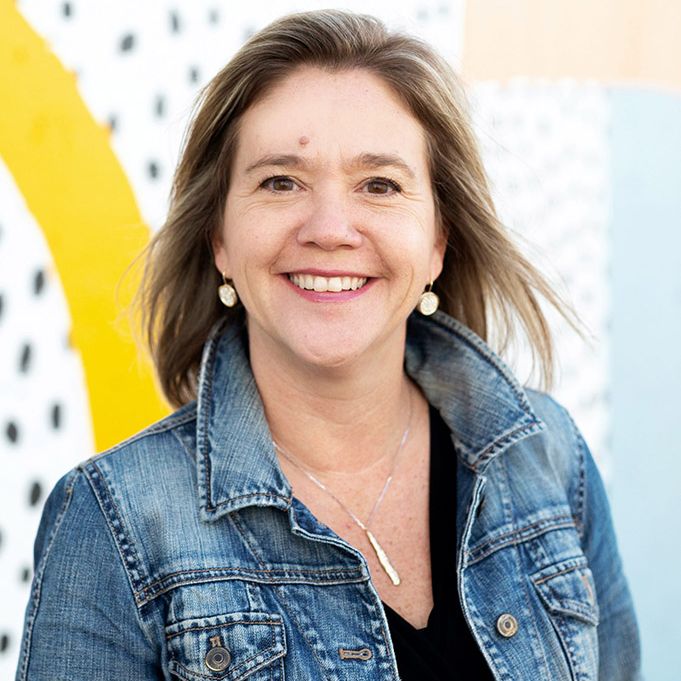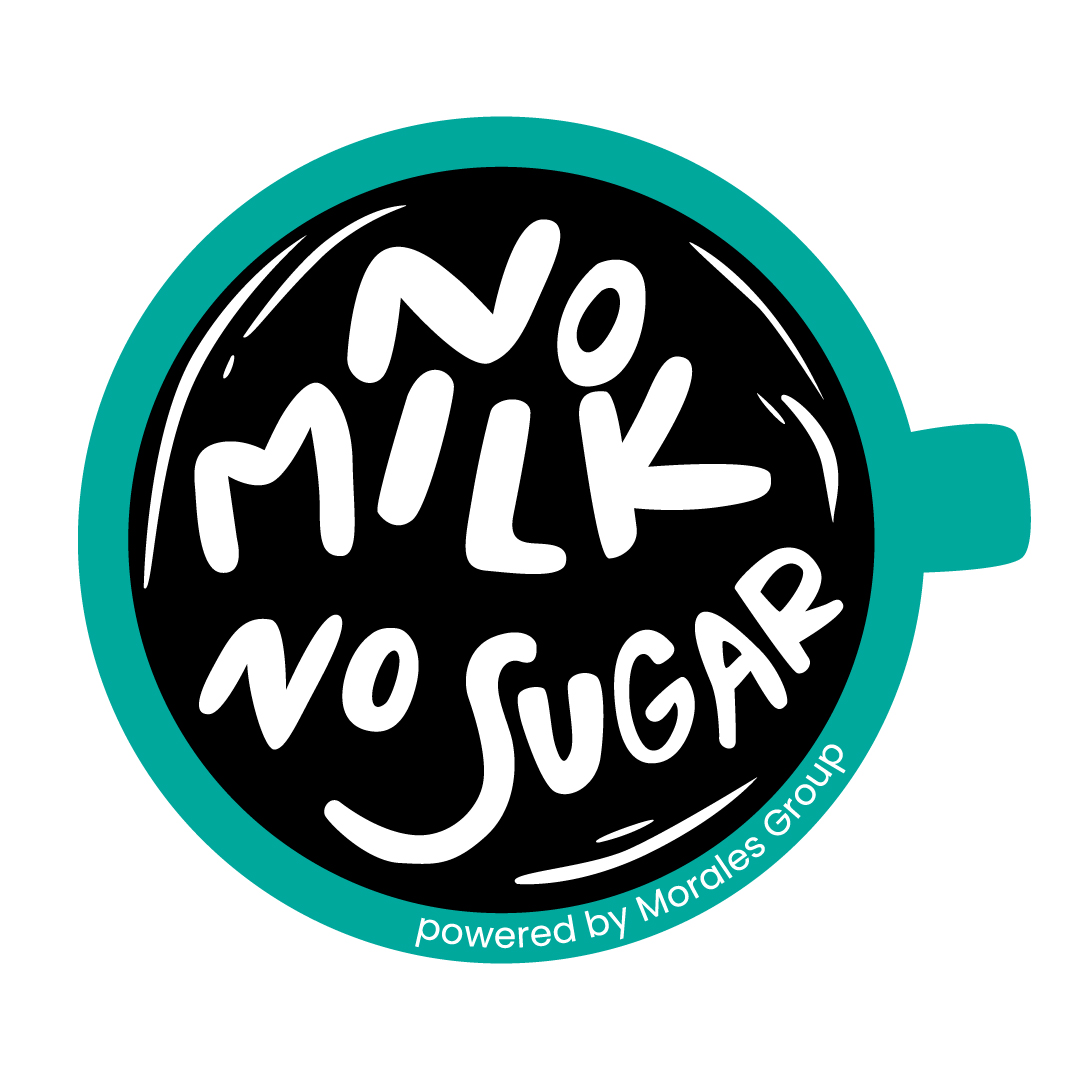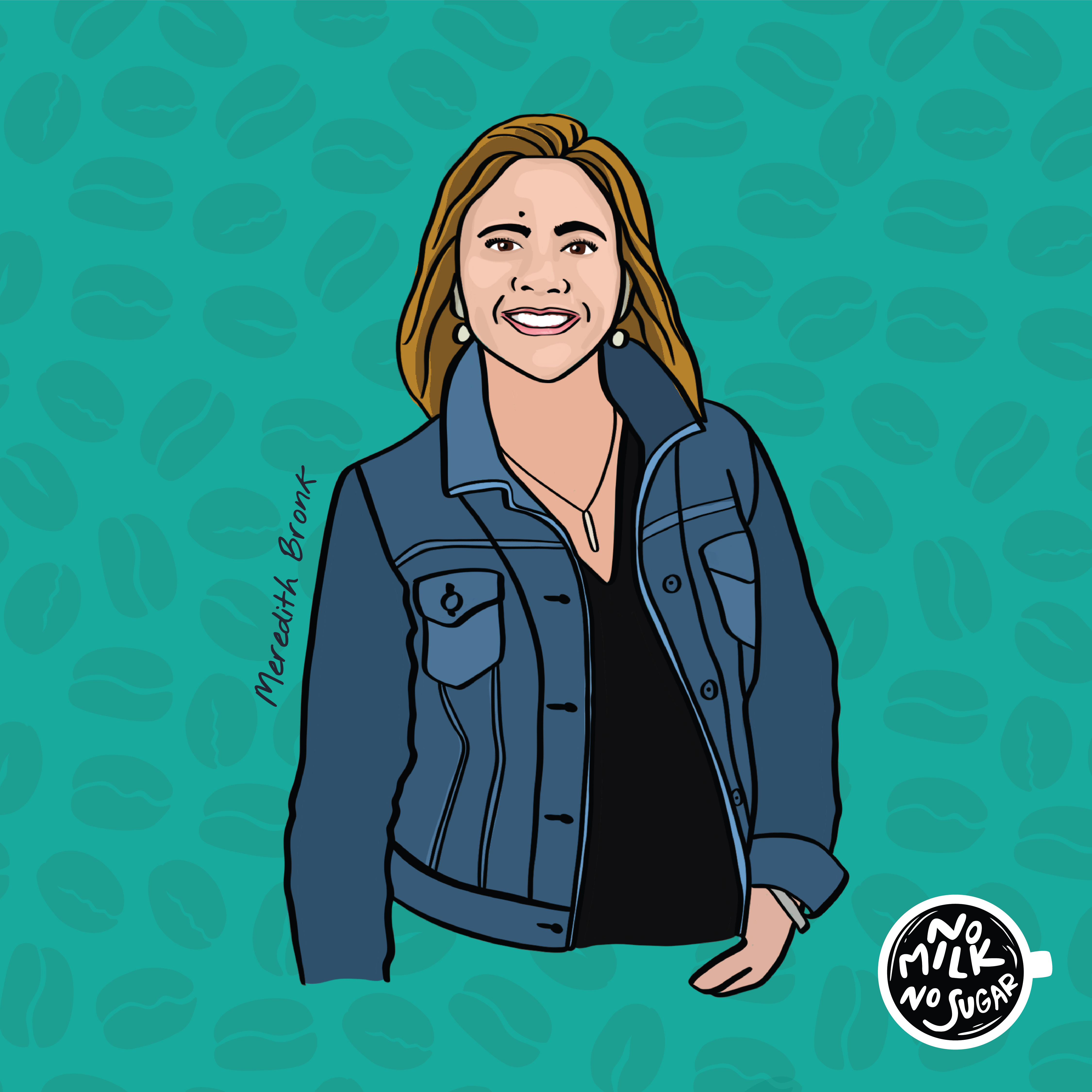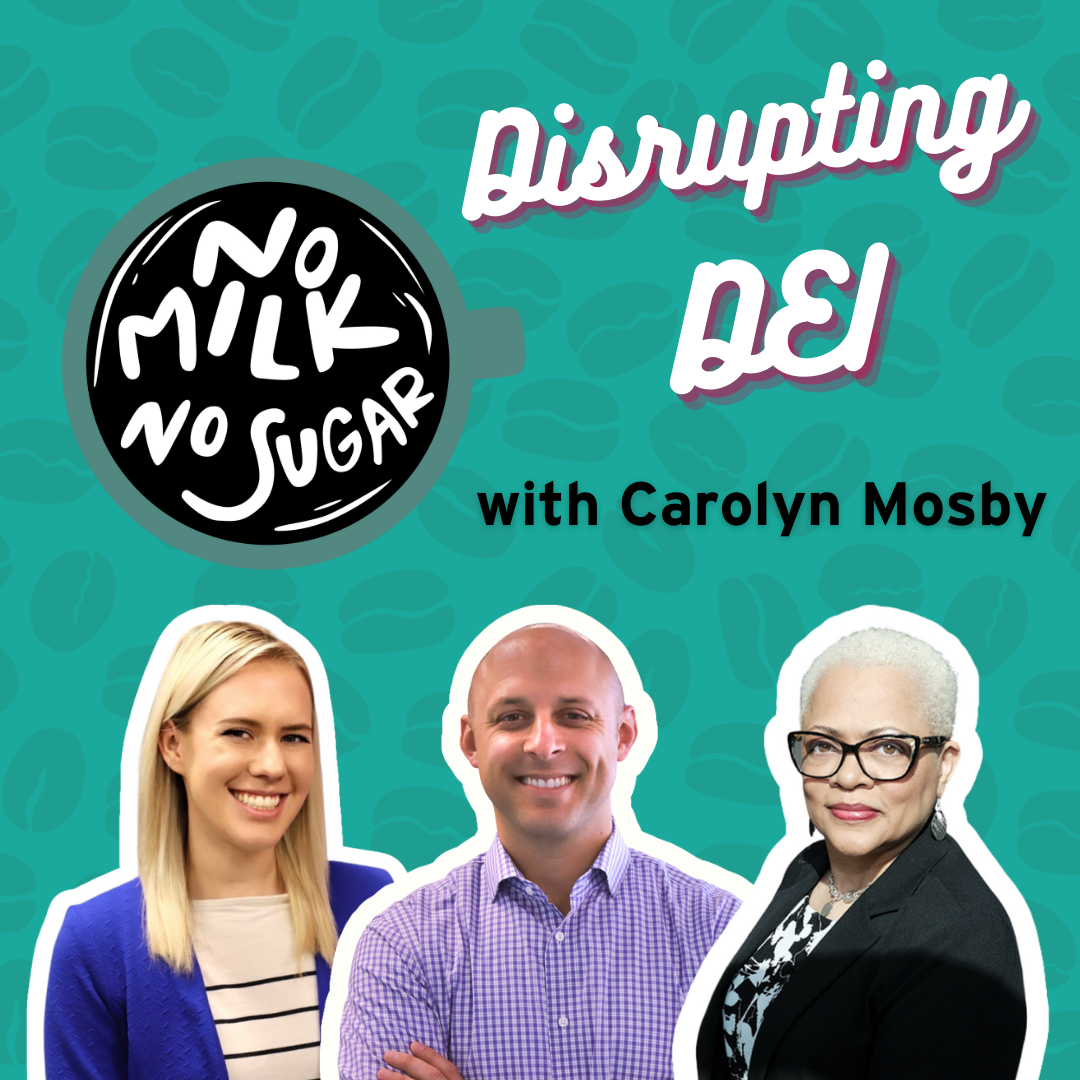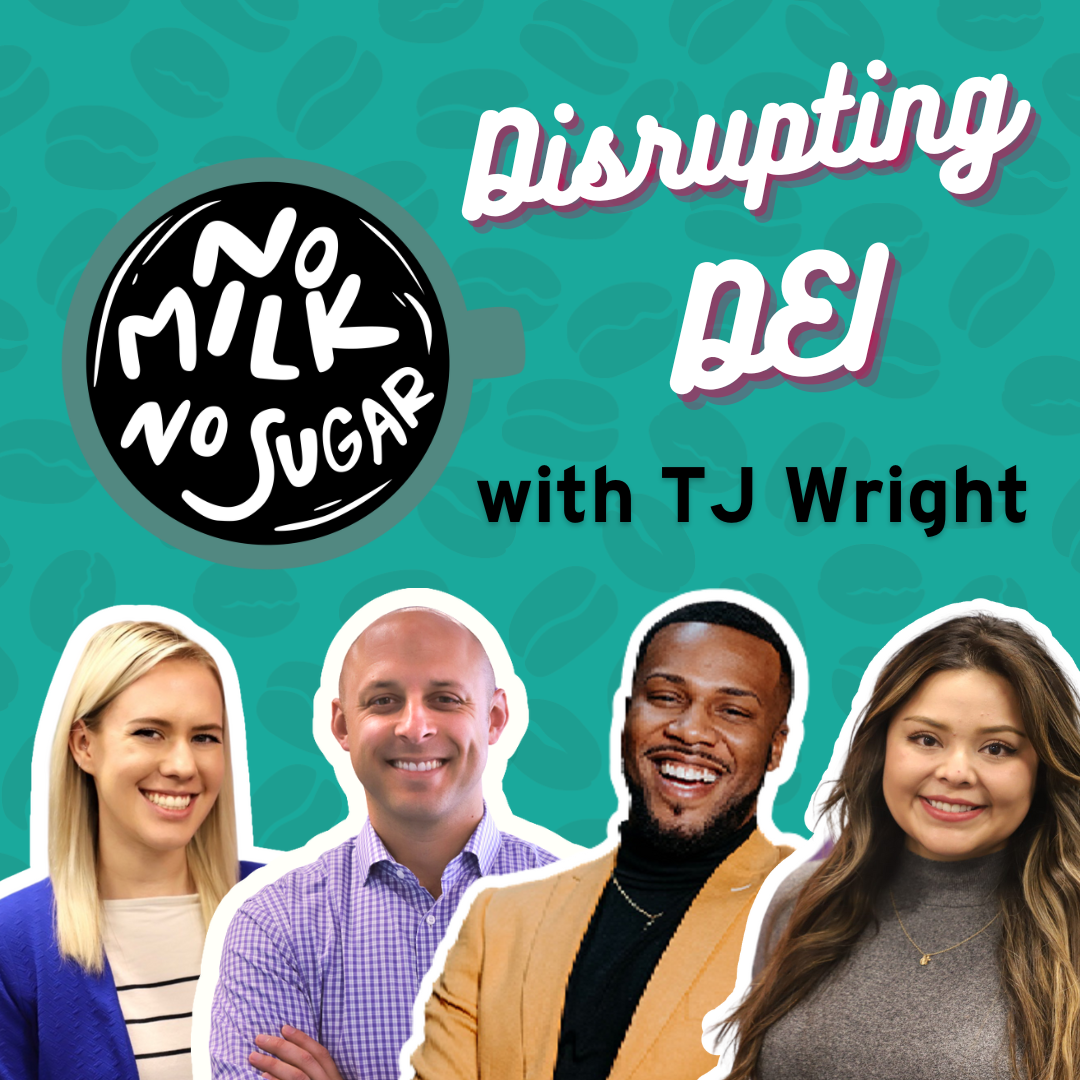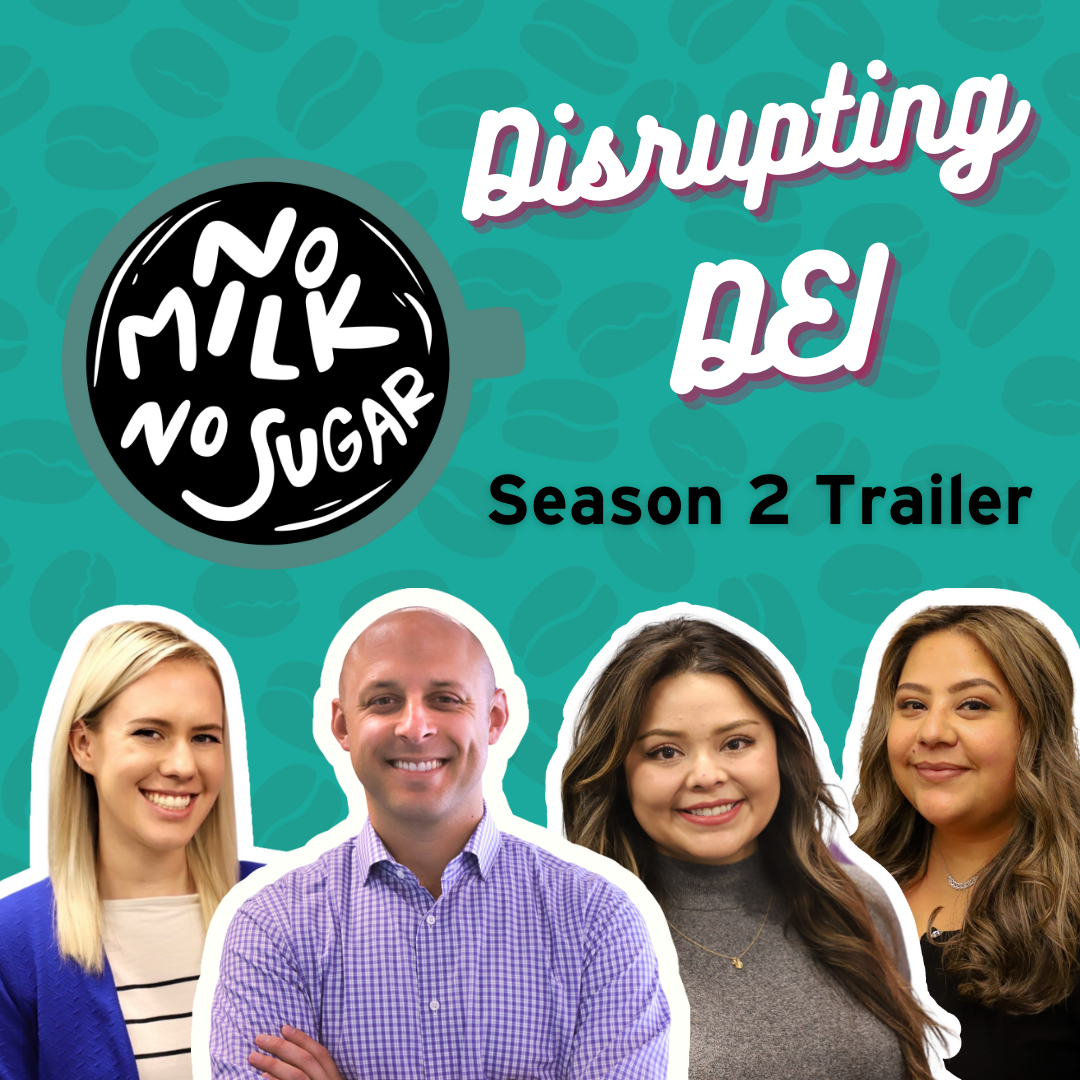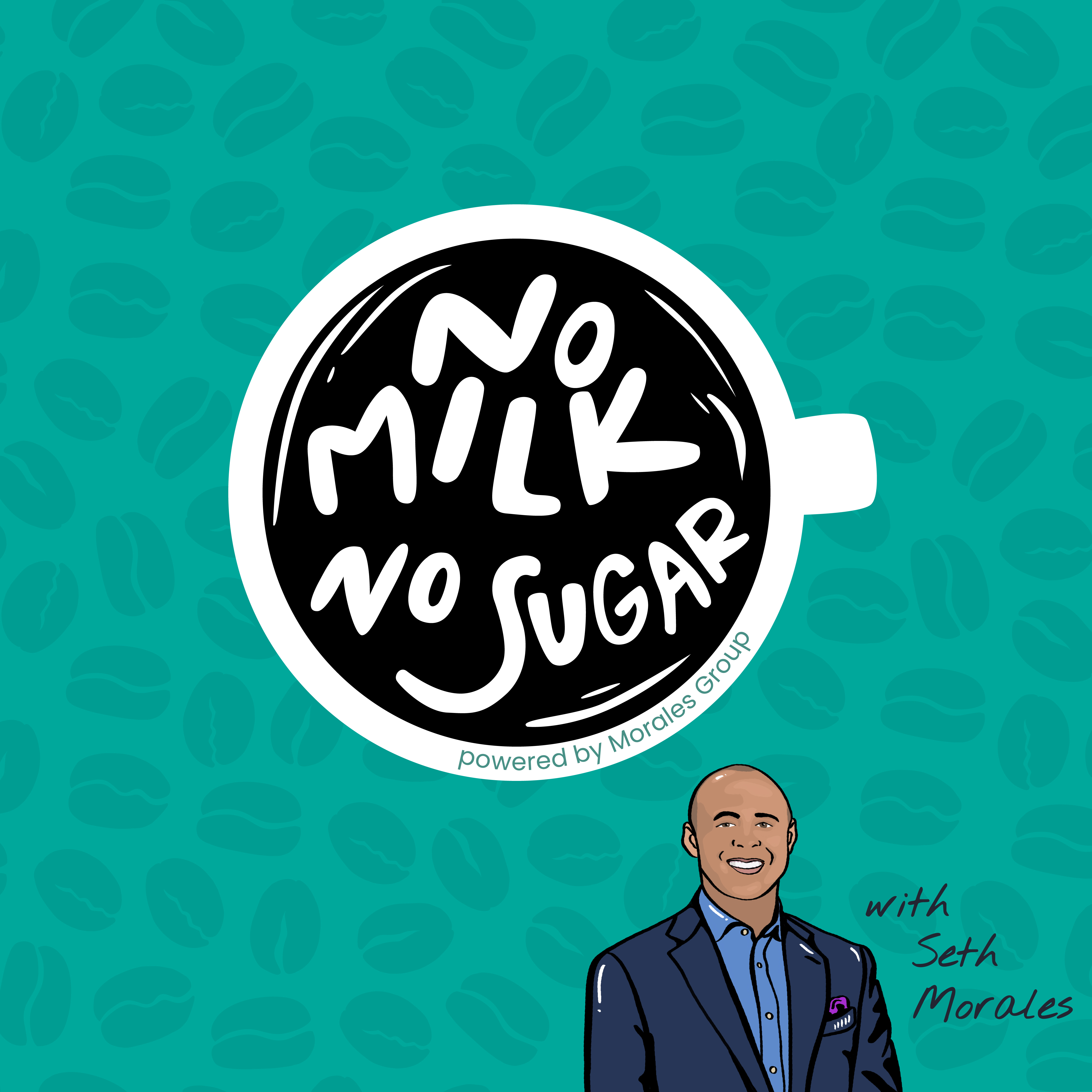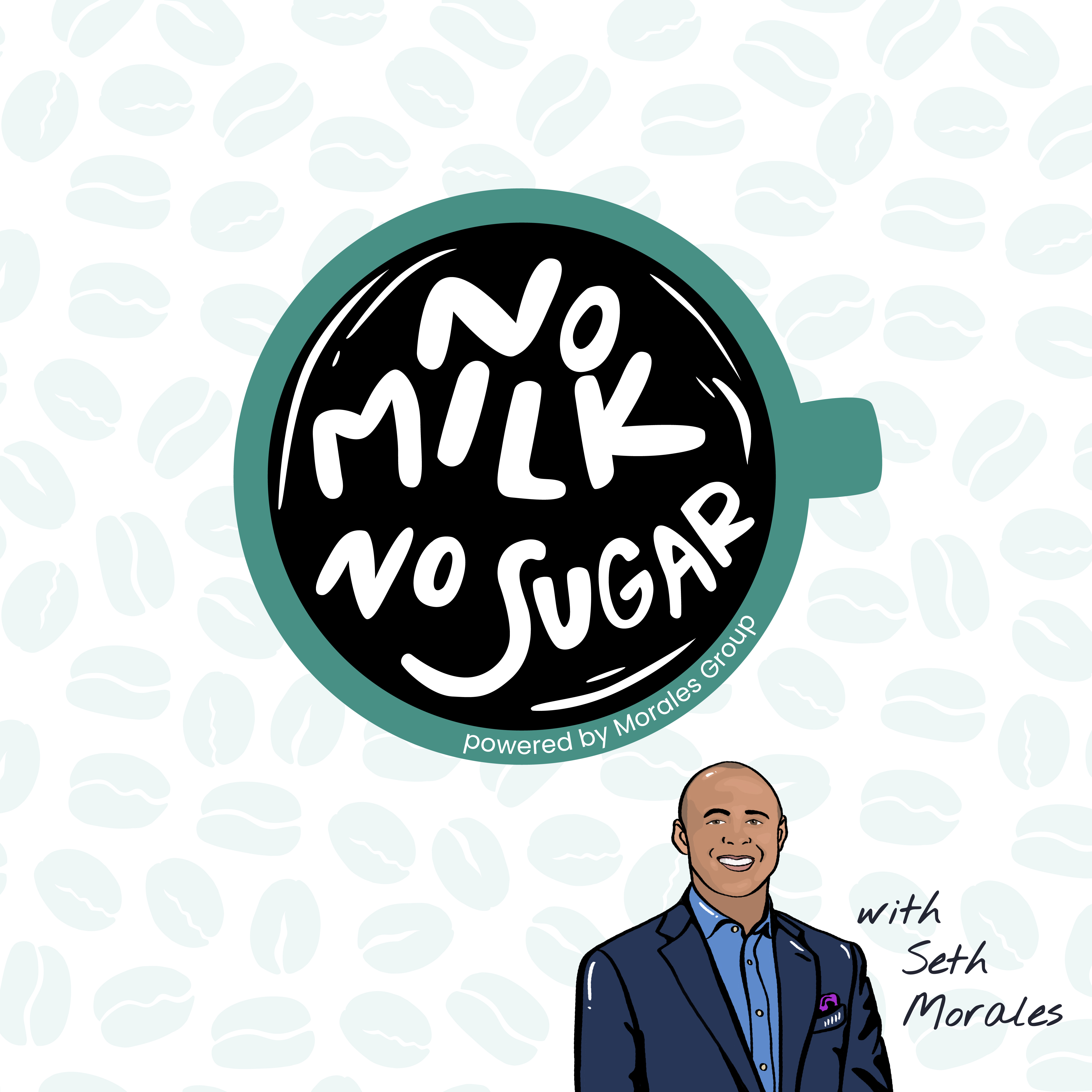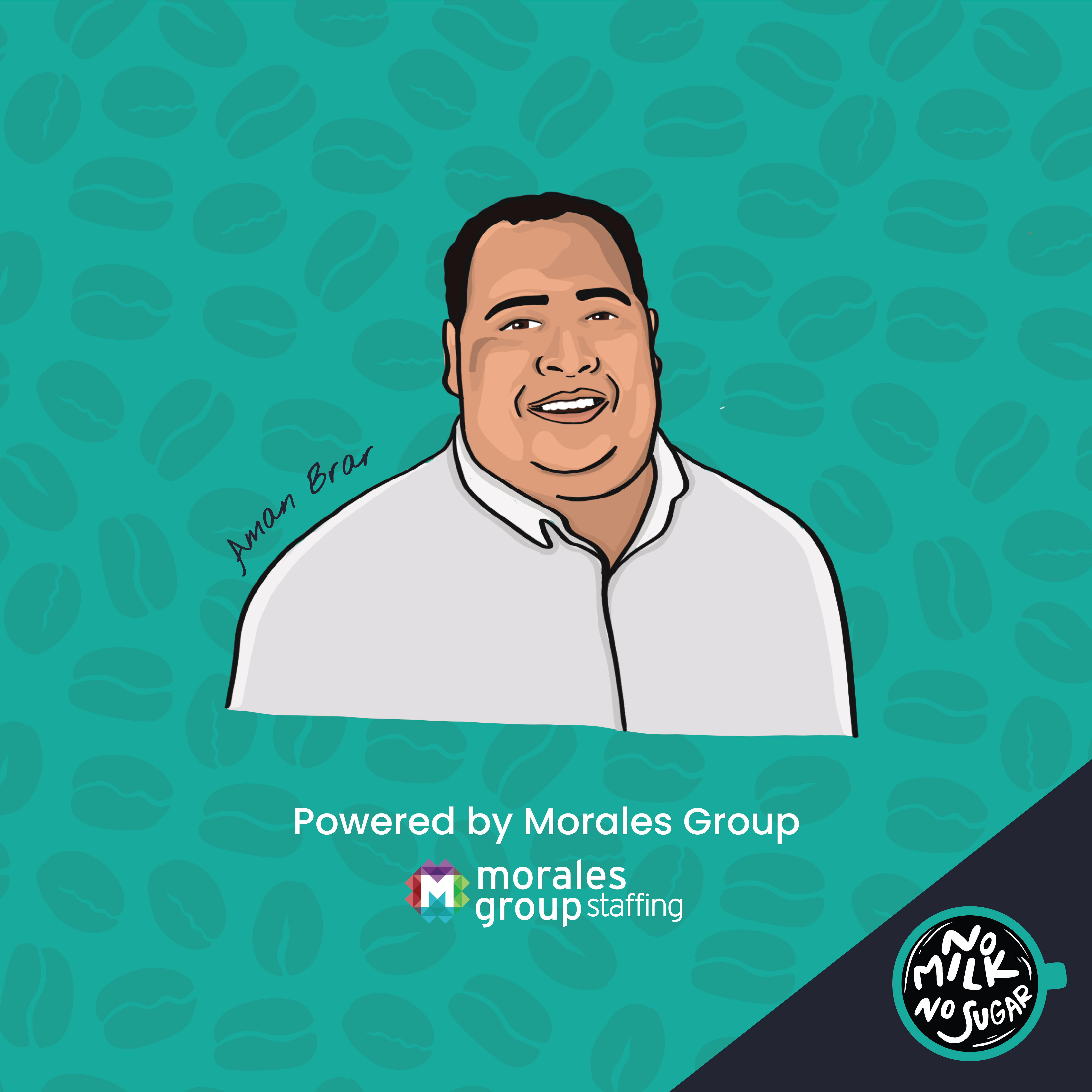CEO Equals Chief Empathy Officer, with OST's Meredith Bronk
- 0.5
- 1
- 1.25
- 1.5
- 1.75
- 2
Speaker 1: I've got a coffee for Seth. No milk, no sugar.
Seth Morales: Right here. Thank you.
Tori Updike: You're listening to No Milk No Sugar. The podcast about business beneath the sweetener powered by Morales Group and hosted by CEO Seth Morales. We talked to local movers and shakers about what can be the harsh reality of doing business. We cover what no one likes to advertise, but everyone wants to hear. I'm Tori, producer of the show. And today, Seth will be talking to a personal friend in open systems technologies, president and CEO Meredith Bronk.
Seth Morales: On this episode of the podcast, we have Meredith Bronk. Meredith is the president and CEO of OST also known as open systems technology. They're a technology company up in Grand Rapids, Michigan. She'd been with the company for 20 plus years, and she's a dynamic innovative CEO. She's one of the best CEOs, in my opinion, in the state of Michigan, if not in the country. Her company has mass with over 200 employees. They're a innovative, empathetic culture, and we're just thrilled to have her join. We know Meredith through our grad school program endeavors, when we're up in Notre Dame doing our MBA program, my wife and I and Meredith were all in the same cohort together. Meredith has some real nuggets of wisdom and is a bright light when it comes to leading with authenticity. Meredith is one of the more real leaders that's down to earth and calls it as she sees it. So we're excited to have her join. Welcome to the podcast Meredith. We're really happy to have you join us. Welcome aboard.
Meredith Bronk: Thank you. Thanks for having me.
Seth Morales: Absolutely. So I wanted to start off just with one topic that I think has been really important over these last six to seven months, which is the pandemic and everything, and running your business. I've been thinking a lot about employee engagement and how you keep up with employee engagement in times of COVID. And one of the things that I've been doing with our team is we've been doing a lot of virtual town halls. And one of the major takeaways is that mental health and just emotional wellbeing is so important right now, just from your standpoint, how are you dealing with that? Give me some high level notes just from your seat. What are you seeing or how are you helping create better engagement?
Meredith Bronk: Yeah. We have the great advantage as a technology company that when mid- March rolled around, I pretty much said," Okay, everybody grab your laptops. I'll talk to you on Monday." And we're really in a privileged position where we could keep doing what we were doing. A lot of folks around the country, you didn't have that same benefit. So the interesting impact that they had, and I think as I've talked to other folks who've been able to continue working remotely is that initially it resulted in some of the most productive work that we've had in our company's history. As people really were grabbing white knuckled onto this one thing that they had, where everything else felt out of control, but that clutching isn't sustainable and it wasn't sustainable. And as March went into April, went into May, especially we're headquartered in Grand Rapids, but we also have offices in Minneapolis and with some of the stuff that happened with George Floyd as well, we just had kind of a confluence of all sorts of things that just took their toll on our energy level. So when we think about employee engagement today and how that has kind of ebbed and flowed, our focus really is in what we talk about two different things. One is connection. You mentioned your town halls. So what are we doing to keep people connected? Whether early on it was happy hours that kind of ran its course also. What are we doing though, to get creative, to keep people connected? And the second thing is around safety and that's both physical safety and emotional kind of wellbeing and safety. The physical parts the easy part we opened back up mid June and are allowing our team, anybody who wants to come into the office to work from the office. If you want to work from home to work from home, most people are still choosing their primary workplace to be in their homes. So we're sanitizing and masks and all that. But the emotional side of safety is probably the hardest thing to solve too I think from a leadership perspective today, no two people are in the same place. You got people with small kids, you got folks who live alone. You've got introverts who feel like they were made for the pandemic and extroverts like me who are going stir crazy.
Seth Morales: In the town halls, the feedback I've gotten, it's kind of been a split decision where there's some people that need to be in the office and the others are," Hey, I'm good remote trying to figure out what's that balance." And then the heaviness of you talked about just whether it's the racial inequities or just the pandemic. We had a teammate who lost a mother and a grandmother in the same week. I mean, just the toll that it takes on folks. It's real. And I didn't realize how much of a mind game it's been in 2020. So it sounds like you guys are in tune to that. You feel like," Hey, we got to physically keep them safe, but also mentally work the ways to make sure they're fresh and that they have that latitude to kind of take a mental day off. They need to."
Meredith Bronk: Yeah. And I think recognizing that truth is one thing, but kind of in the spirit of what we're talking about, the reality is most managers don't have, and aren't trained up on the emotional intelligence to do that well, and I love our team and we've got a really great team, but how do you have a conversation about mental health? We did. We brought somebody in from the outside who kind of gave us a little session to all of our managers, anybody who has someone who reports to them inside of OST, we did a little kind of a Q&A and panel discussion about how do you initiate a conversation about mental health? Because we don't know how to do that, right? That's not part of your standard training, unfortunately. So although you recognize it, actually doing it well and figuring out how to do it is hard.
Seth Morales: Recognize it, but then acting on it, training your team, because nobody on your management, unless you've gone to school for that specific like type of mental health training, they'll have that experience.
Meredith Bronk: When we think about that, Seth, from an emotional intelligence perspective, how are you able to meet people where they're at? Because you've got some folks who are like," I'm good." So to bring them down with this heavy," Are you okay?" And they're like," Maybe, I don't know, should I be?" You know what? You also don't want to cause negativity, but you have to be able to read the nuances of meeting people where they're at. Easier said than done.
Seth Morales: We do these monthly town halls inaudible. And for four straight months, it was like my address to the company was very heavy and I felt like I was bringing people down. I've heard the quote that the pace of the leader determines the rate of the pack and my positivity and not. I mean, you're right. Everyone's different. And I think just having all those different town halls and seeing kind of the grief from our team, I was trying to be over empathetic, but maybe over- index with some certain people. So it is customized and specialized for each individual. And we are just trying to figure it out as we go forward. But it sounds like, that training is a good initial start and then having more dialogue with your leaders about it. That's a good way to kind of dig into it.
Meredith Bronk: Yeah. And the broader the group you're trying to address that, right? The broader the group, the harder it is to maintain a message that is going to resonate. So you want to be positive, but you don't want to be Pollyannish, right? It's like you have to strike that balance. I'm a big Simon Sinek fan, as I think you know, in his Start With Why book, he talked about the Martin Luther King," I Have a Dream" speech. And he said in there, and this resonates with me and it's resonated with me a ton is his speech was, I have a dream. It wasn't, I have a plan. And so as a leader were brought and compelled to share a vision that other people can step into. I have a dream and somebody's like I have that same dream. That's the part that I'm trying to kind of grasp onto from my leadership perspective, to give people that. They also need to know you got to plan, especially for some people who want to know you got a plan, but it has to start with, I have a dream and can I attach to that and give everybody something to look forward to and then try to meet them with the details that are important to them.
Seth Morales: Kind of shifting from the engagement part and kind of the EEQ side and move into you personally, right now you're juggling a lot. You have a full team at home. I believe you have three daughters, you have a loving husband and you're running a massive successful business and you're navigating through this pandemic. And there's probably some growth opportunities just given just in the tech space and just kind of some of the disruption that's going on at the dependence here. So how are you as a leader, there's a lot going on, how are you not burned out? How are you dealing with this? And then how are you kind of setting the tone for the rest of your team? What are you doing right now?
Meredith Bronk: Today's a good day, a couple of days ago, not so good. It's like it totally ebbs and flows. And I got to admit, I would say, I was not in a great place. I am an inspirational leader. I am a glass half full, no matter what kind of a person and my glass was empty and finding the energy to try to lift others up when I could barely lift myself up was hard. Choosing the people that you let see that at some level was probably part of the guardedness, the lack of separation between our worlds was draining. I think the reality though is and I was telling my coach, all of my healthy coping mechanisms had been disrupted. My exercise regimen was disrupted, meeting with friends, all of the things that we do, all of those healthy. So some people resorted to the unhealthy. I mostly get that at bay although I ate a little more than I probably should have, but I mean, let's just be honest, right? But it's hard. So I think in the middle of all that, for me, it was about trying to find those rituals. And re- establishing some rituals that fill the tank back up, asking other people. I have a good friend who says, as leaders we're called to innovate. And one thing that we can do, one practice that we can do is challenge ourselves to consume something inspirational, aspirational and instructional every week. And that resonated with me. I was like, am I consuming inspirational, aspirational and instructional? Am I learning? Am I getting outside of my comfort zone? So I initiated some new habits from a consumption perspective with podcasts and books and just creating some space where I could find it. Also then as a leader, talking about it with my team and with the managers inside of OST, I remember one day, my calendar opened up. It was two o'clock on a Thursday afternoon and it was gorgeous outside. And we live on a lake and I was like, I'm going to go sit outside. And I'm just going to read. I almost felt guilty for sitting outside in the sunshine reading. Because I was like," Should I be next to my computer? Should I be on a call?" All these other poles? And I was like," No, this is good and healthy." But I had that nag in the back of my mind. I'm like, if I as a CEO have that nag in the back of my mind, how can I give permission to my team to be their best and to innovate? We're in technology. We need to innovate. So really kind of tapping in to some of those new rituals and new behaviors is really, really, important for me personally.
Seth Morales: Yeah. I like that. How you thought about how you could give permission to your team when you're kind of self- reflected and got out of that funk in May. Was this like," Hey, I'm talking to you as other leaders to pass this along." Or did you address that openly with the entire team? How did you help give that permission to your staff to kind of think about," Hey, take a break, take a half day, you have the latitude." What did you do?
Meredith Bronk: One of the things that we decided as a group, we threw in an extra holiday this year and we gave the Friday before Memorial day weekend as an extra day off, because we were saying to people, you need a break, you need a break, but they weren't taking it. None of us were taking it, but they weren't taking it. So we're like," Okay, we're forcing you to take a day off." Everybody's taken the Friday before Memorial day, take a four day weekend. That was one very explicit way in which we were able to do that. That became really important. I started doing kind of your town halls. I record a video message every Friday and I send it out to the entire company. Sometimes it's talking about a cool project we're doing, sometimes it's just talking about kind of what's going on. So sometimes it's pulling on current events, you know what I mean? Sometimes it's motivational. Sometimes it's reflective. It has to be authentic to who I am, which that's kind of the leader that I am. So finding that voice in the moments where I felt like I didn't have much energy, I mustered up all I could, because like you said, the leader sets the pace for the pack. It was also really important that I recognize the struggle so that people know that they're not alone, but also talk about how I'm overcoming it and how collectively I think that we can overcome it. Those kinds of messages have been really important the last six months. And they've influenced how we're thinking about forward, right? What have we learned through this and how is that going to shape what we're going to do in the future? We'll take some of these new rituals forward with us because they're helping us be better.
Seth Morales: Hey, one last question on this kind of gas in the tank thought. I want to get into this kind of behind closed doors. So Meredith in May, when you were kind of salty or not doing so great, what does not so great look like? Is this you yelling on a Zoom call or is this you just being salty with your family? Or is this you clamming up? What does that look like?
Meredith Bronk: No, it's both. It was a little bit with my family because they're so close to me and it's safe. But at work it was, it's a short fuse. I'm a slow burn. Eventually you can set me off, but it usually takes me awhile. And for me under stress, it was like," Are you effing kidding me?" I probably said that more in the month of May. than I said, in other months, or get moving, what are you waiting for? Just that kind of urgency. So that's partially what it looked like. It was just like," Holy hell man, we got to do, let's go, let's go. Let's go." Or you want me to do that for you too? I'm having a hard enough time with me. You need to do you because I'm doing me right now also compelling people to action where I felt you can normally carry people with you and bring them along. I was like," I'm heavy enough, man. You got to stand up." Some of that too, just calling it right out. And most people rise to the occasion once they realize. They're like," Okay, I got this, she got this. All right, we're going to be okay."
Seth Morales: I love the realness there. Just pushing on people, not having enough patience or kind of having a short fuse. I felt like I was yelling and screaming at people and I'd never done that. And I got to March early on, I got fearful and reacted quickly. We had a customer in Charlotte, pull the plug on us. And I was like," Oh, we're closing this down." I reacted. I didn't reflect. And it's something I've just been trying to grow during this time and not react right away and buy into kind of the hot emotion that I have at the moment, but reflect and soak on it and then come up for air.
Meredith Bronk: You get situational too. I know for me, it's like a segment of our business and part of what we do is we sell big computer systems to start companies and capital budgets for that have all but dried up right now. That's a huge part of our business that just went. It's trickle in. And it's like," Okay, hold on a second." And so the fear that comes in, what do we got to replace? And what are we going to do? And we had to pivot and there's another side of our business. It's like just the going gang busters, right? Flood Gates have opened. Consumer behavior changed overnight. Tele-health and buying stuff online like houses and boats. And people were just literally changed on a dime, which opened up a huge side of the other side of our world. So also to regulate that, I think that was part of it. It's like just when something gets you down and a little bit afraid. On the flip side, I'm now being dragged into a conversation with this abundance mindset. And I'm like, the dichotomy of those two things was exhausting.
Seth Morales: What are some thoughts that you're thinking about your team on the go forward and just maybe just some kind of high- level thoughts as a CEO? What's going to be the best balance for your team? And just, how are you kind of managing through this?
A couple of things come to mind. One is how we work, and our team, a lot of them want to work remotely and want to work from home. As a CEO with an empowered and engaged workforce, I think choice is a really powerful thing for folks. At the same time, there's part of me that says selling happens better face-to-face. Collaboration happens way better face-to-face. We're trying to decide, where are those kind of non-negotiables, where we have to create the space and create the expectation — while we're given great choice in what we've learned in our ability to work remotely — these things are expected to happen in proximity. So really trying to get intentional about that without being too directive, that will be an interesting dynamic. We'll change our physical workspace. We got cubicles and not cubicles, but we've got a kind of an open office environment with workstations and stuff, we're totally changing that around to be more collaboration, work zone kind of spaces with very small, not really closets, but almost little kind of private and physically secure from a germ perspective meant for kind of one person. So we're physically changing our workspace a little bit to accommodate that again, that'll be the easy part. It's the behavioral change that we're going to have to mold through where people know that they can still do their best work and their best work happens with each other in this office. And getting people around to kind of take in that mantle is going to be an important part for us. Most people don't want to talk about it. Every Google or those big tech companies are like, "we're closing our offices and everybody gets to go work remote forever and ever," and it's like, that's going to come back. And I'm willing to say the tough stuff, that dirty little secret that nobody wants to talk about, which is we need people face-to-face. We have to figure out how we're going to make that happen without negatively impacting morale or engagement.
Seth Morales: Yeah. It's going to be I think an artful balance, trying to think through what you need to do as a leader and having some of those maybe radical candor type conversations with maybe some of those departments that would benefit more. One other thought I was just wanting to throw out to you was knowing what you know now, what, if anything, would you do differently as a leader in 2020 if you could go back? Anything, pop out like, Hey, you know what? We should've done this or I could've done that.
Meredith Bronk: The only thing and hindsight's 2020, of course. The interesting thing for us inaudible our fiscal year started April 1st. So interestingly, we had a company- wide kickoff where we brought all of our employees to Grand Rapids for the day, which is something we do every year to do vision and set our goals for the year and it's a celebration. It's an awesome, awesome day. We did that on March 6th, Friday, March 6th, Friday, March 13th, everybody was working remotely and then April one, our new fiscal year kicked off. So when I think about the planning that we did that went into this fiscal year, I think, if I had hindsight, I probably would've prepared earlier for the longterm. I think, like everybody else in March, April, May, we were hoping it wouldn't last that long, hoping we could just kind of get through this. And it caused a little bit of a slow-down, at least mentally, a kind of almost a survival, as opposed to saying, "We need to approach this like it's going to take a long time. We need to approach this like this is going to be the entire year of 2020. What are we going to do?" I think I like everybody else. We're kind of trying to read the tea leaves. So if I can move a little quicker toward that, I probably would have, that's probably one of the biggest kind of in retrospect, also setting longer expectations with folks. I think one of the hard things is we set some really aggressive growth goals. We have fantastic momentum coming into this year. So a ton of stuff happening in our space, a lot of investment happening in tech and we're not meeting our goals this year. We had really aggressive growth targets. We're doing better than last year in a lot of ways, but not hitting the aggressive growth targets. So modifying early on expectations and communicating against that so people don't feel like they failed is probably also something that I've done better in the last 60 days than I did in the first 60 days. It's still like," Well, maybe we can accomplish it. We'll see what the second half brings." Whatever that looks like, but really aligning expectations so that people weren't demoralized as we saw some of the results against goal. And instead give us different mileposts, to measure ourselves against in this year is just something that I've learned probably over the course of the last few months that I'm doing better today than I was inaudible.
Seth Morales: Having grace that's something that you've just been a huge... I remember early on when we met at grad school, you were just a big proponent of saying," Hey, have grace for yourself." Whether you're talking to my wife, Jackie, or talking to me, trying to be a new leader or vulnerable. Your comment about just having grace. Whenever I hear that comment, I think about you. So I think that's been something that's been rich that's kind of a takeaway from our days in grad school. Speaking of grad school so Meredith and I went to grad school at Notre Dame and Meredith would always have... You and Dan inaudible would have some of the smartest comments. And I was just like," Man, I just want to be like that." I mean you're so, so intelligent. And I was like," Oh my gosh, I'm so dumb over here. I can't even come up with anything to say." But I think learning and seeing you as a leader, you were always one of the more dynamic people in class, and it's been cool to see you move into the CEO role over time. So you were at one point at OST or the COO, and then you moved into the CEO role. And you've been in that position for several years now, but going from number two to number one and helping kind of walk me through that, I just recently went from number two to number one. Any advice to a listener who might be an executive that hasn't yet taken that step to kind of the top seat. Like if you're going from two to one, what's the difference or anything just like the path or when you're in the seat, anything you would share just being in the driver's seat?
Meredith Bronk: You mean all the Glamor that comes with it. Oh my gosh, I liken it a little bit to when you become a parent or something that people can tell you what it's like to be a parent, but until you're a parent, you can't really know it. I think there's a part of that at least that's how I felt. I had been with the business for 17 years, had grown up in the business when I converted from COO to CEO. And I thought it's just a letter, right? I got a letter change and I got this. Nobody knew the business better than me. Nobody had better trust than me. All of that was true. And yet on April 1st, when I took over, I woke up at three o'clock in the morning thinking," Holy hell, what did I get myself into?" And April 2nd and April 3rd and April 4th. I mean, for real, right? All of these families depend on us to make good decisions. And the weight of that cannot be underestimated. It's why you need to give yourself some grace, which is why I use that. Especially I'm way better at giving it to others than giving it to myself. But the thing that I think about that was most surprising in that move. And I know you and I have spent some time talking about it and this is true when you have different circumstances, changes. I found it, especially moving from COO to CEO, but any kind of a role change or something like that, or the loss of a leader or somebody else who's got big shoes to fill, figuring out and being solid in your own leadership style and holding on and leveraging that in the middle of change is hard. And I did it. I messed up, I would say, I mean, I did a pretty shitty job if I'm going to be totally honest those first few months. And here's why, because Dan Behm, who was an amazing founder CEO and my mentor and leader for 17 years is not the same leader as me. He is gregarious. He is outgoing. He comes up with all the crazy ideas. I was COO. I was like, "You got that idea. I can make that happen." And I'm trusted and I'm consistent and I'm dependable and I'm authentic. And I have this demeanor. Well, I became CEO and I was like, Dan was fun. Do I need to be fun? How am I going to be fun? I have to come up with all the crazy ideas now. And so for a couple months, I didn't know what to do. I didn't know who I was. And everybody was just looking at me, "What is she doing?" She running around like her head's chopped off. And I have this incident, which is totally true. I had this incident and it was Labor Day. So I was almost six months into this role. And I was talking to a friend who's also on our board. And I had a tough decision to make about terminating somebody, a guy who was cancer to our company, but he was a producer, but he was cancerous. And I said to Liz," I need to let him go." And she's like," Okay, do you think it's the right thing for the business?" And I said," I do, but Dan won't." So Dan Behm was our founding CEO. He was still on our board. And she said to me, in that moment," It's not his business anymore. It's yours." And I was like," Oh my gosh, she's right." Holy hell. If I'm going to be successful, I'm going to do it my way. I might not be successful. But if I have any chance of being successful, I got to lead my way. I need to stop all this nonsense. So I came back to my executive team after the Labor Day break and I brought them all in a room and I was like," I'm sorry, I don't know what the hell I've been doing the last six months, but I'm going to lead my way. I'm back. Here I am. I'm ready to go. And here's what I need from you." Here's the shoes I was trying to fill. Here's how we have to figure out how to do this as a team, as opposed to me trying to take it all on myself. Getting through that realization took me maybe longer than most people, but that transition was hard. And I didn't give it any space to be hard.
Seth Morales: That takes some time trying to figure out when you've been in a company for so long and your skill set was to execute and operate, and then you have to shift gears and be a little bit more visionary. While you're not Dan there's still aspects of that. It weighs on you in the back of your head, very similar paths as what I've gone through with my father and my dad is much more outgoing and gregarious. And he's this big Mexican Teddy bear that loves to hug everyone. And I'm not that. Trying to compare yourself to that and what would Tom do in this situation? That weighs on you. So I think you have really good self- awareness, which I think is a great skill set as a leader. Being able to kind of understand your strengths and figure out how you play and then be able to take a step back as a leader and say," All right, I'm forcing this. This is not me. I need to be my own person." Maybe sometimes it takes that individual that said," Hey, this is your business. Run it." I mean, this applies for a new manager coming in to take an old manager or somebody get promoted. I mean, this is at all levels. And that's key, making that move on that producer that was toxic, that sets a lot of the tone for how you want to roll. It's like," Hey, this is a different style of offense. We're not going to put up with inaudible even if they are talented and they produce on the field, it's going to be cancer in a locker room, let's get them out." So I love that. That just gave me some good insights as to... This is something I've been struggling with this year. I'm thinking about just as a leader and you're going through COVID and you have financial constraints and like, do you terminate people? Just putting that lens on if I was my father, my dad has a huge heart, just maybe different approaches. But you got to think of it at the end of the day as if it's kind of your show to run or your team to have to feel. I like that. That's a great reminder. I appreciate that. I'm learning as I'm going through this podcast just talking to you. So we're coming to kind of wrap this thing up. The best way for our audience to get ahold of you Meredith, is that LinkedIn? Hit you up on Facebook? What's the best way to get ahold of you and what you do?
Meredith Bronk: So LinkedIn is best for me, Meredith Bronk. The name of our company is Open Systems Technologies. We go by OST and our website is ostusa. com. So you want to check out some of the cool stuff that we do and the way in which we do it, you can check that out there, but LinkedIn is probably best for me.
Seth Morales: Thank you for making time.
Meredith Bronk: Awesome. This was so fun. You guys run an incredible business, Seth, and I'll just say real quick here. I think one of the things that has always impressed me about the Morales Group is the purpose behind what you do and how you choose to do it. And it's inspirational for me as a leader, who's had a chance to be close to your business. So thanks so much for sharing the platform here.
Seth Morales: Yeah. Thanks for the love. And thanks for the nuggets of wisdom that you share with us today. Take care of Meredith.
Meredith Bronk: Take care. See you.
Seth Morales: Wow. That was great talking to Meredith. Here's what stood out to me in some of her takeaways. One idea of the necessity of practice in planning, our emotional intelligence response to crisis is I think a lot of us aren't in a crisis situation often and not having that endurance built up or that planning or practice in place is really important. I felt it when we went through COVID I wasn't prepared, but having that opportunity, I think is really important to practice and plan ahead of how you will emotionally respond and in an intelligent way. I loved Meredith's part on authentic leadership. Leaders need to be willing to be vulnerable so that other people can trust you. That is basic one- on- one leadership. And there's a lot of leaders out there today that just don't get that, or can't cross the bridge with their teams because they're not authentic. They're not vulnerable. The other takeaway that I love from Meredith was how it's been very hard during COVID and this season of innovation, but we need to give ourselves the space to allow things to be difficult instead of keeping our operations the same. It's a wonderful time to challenge the status quo.
Tori Updike: Thanks for tuning into another episode of No Milk No Sugar, the podcast about business beneath the sweetener. We hope you learned something and we'd love to hear from you. Tag us with hashtag No Milk No Sugar, or email us at nomilknosugarpod @ gmail. com or connect with Seth on LinkedIn. Subscribe, wherever you get your podcasts. And we'll see you next time.
DESCRIPTION
In this episode, Seth talks to his MBA cohort member, fellow CEO, and family friend Meredith Bronk. Meredith is President and CEO of Open Systems Technologies in Grand Rapids and has been a leader there for over 20 years. Seth applauds OST's innovative, empathic approach — a corporate culture heralded by Meredith and backed up in her personal life as well as her leadership.
Meredith digs into what corporate empathy looks like, especially in a worldwide unprecedented crisis. She shares her tips for leaders to lead with authenticity, and spills her "dirty little secret" about the hard truth of returning to in-office work.
Today's Host
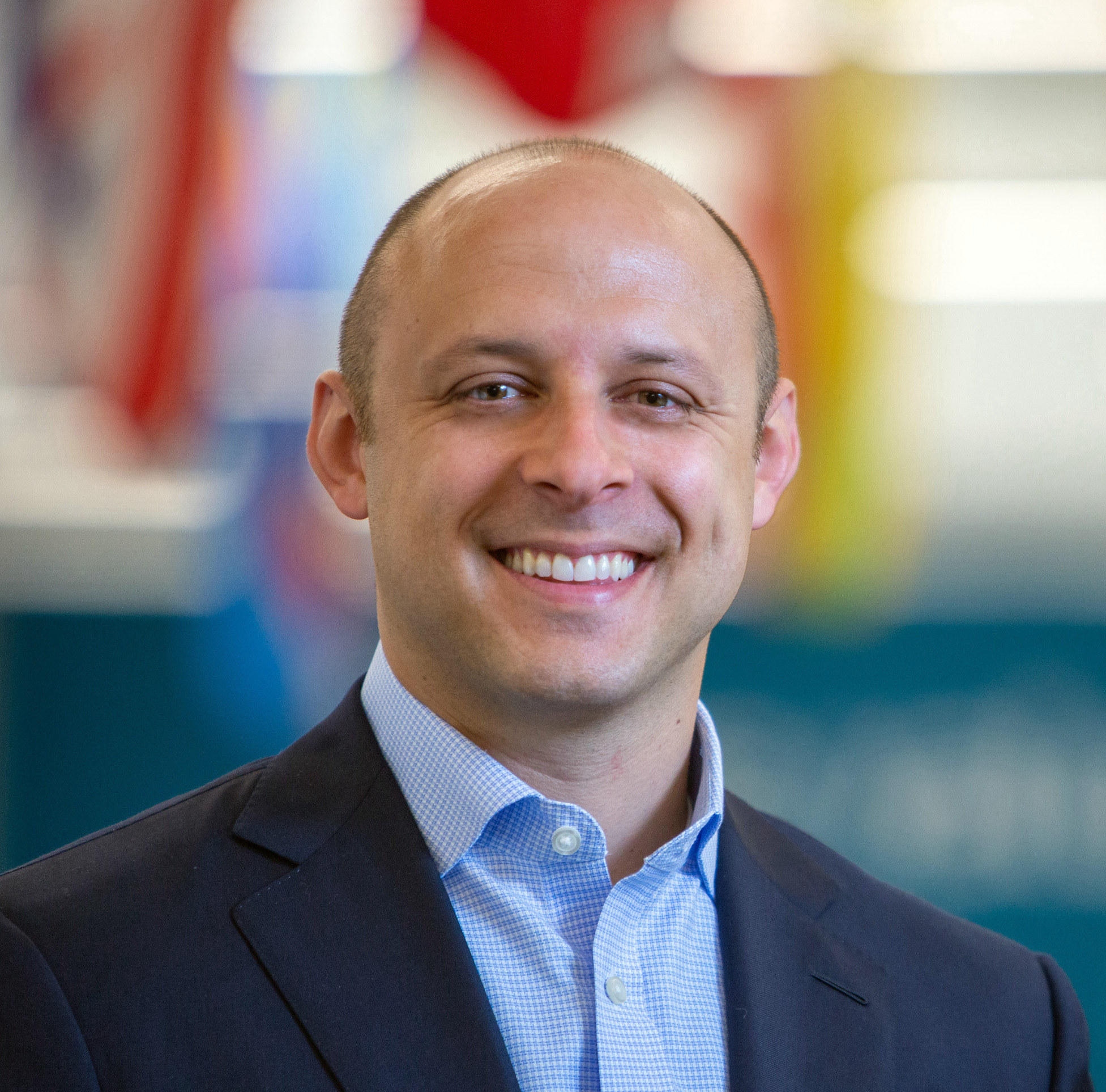
Seth Morales
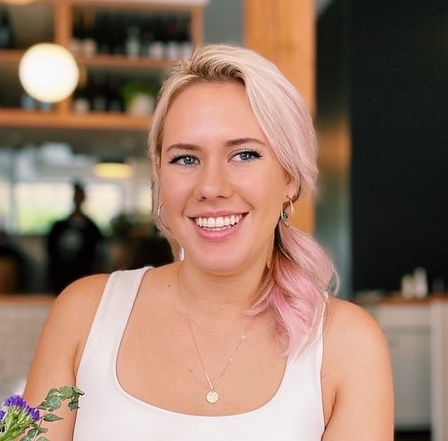
Tori Updike
Today's Guests
